You can go to a book store and find many books on body-language, communication and persuasion. Many of them seem to cover the same material though: posture, gestures, words that work, etc. Sometimes you can find a book or a blog like AJ’s that has unique insights and applications to help you get better at communicating and persuading.
So, where, besides AJ’s blog, can you get good information that not a lot of people have access to, which will help you understand what other people are thinking and experiencing? This information, of course, would help you become a better persuader. You can also use a system like the Mojo Dialer to increase your contacts when you’re trying to persuade people over the phone.
Thirty years ago, Paul Ekman did cross-cultural research and identified seven basic human emotions. He identified the seven basic emotions through facial expressions. No matter where in the world, what culture, class, race, gender, or lighting, these seven facial expressions were identified across the board. By learning to identify these seven basic human emotions, you will get insight into just what people are experiencing.
The Seven Basic Facial Expressions:
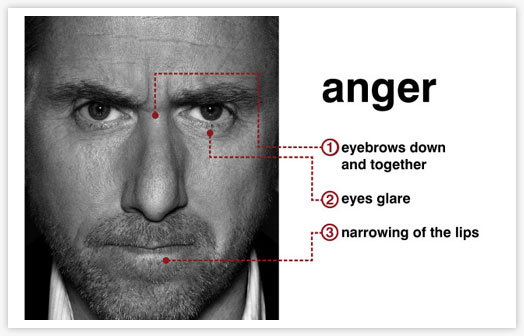
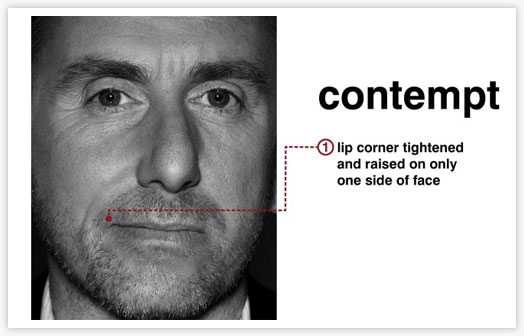
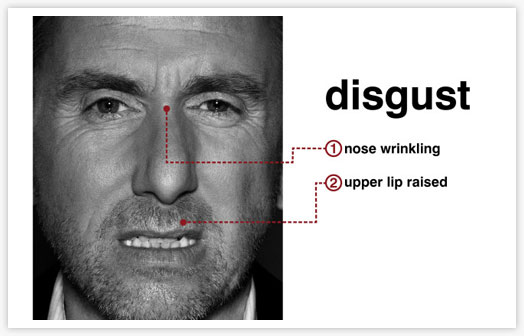
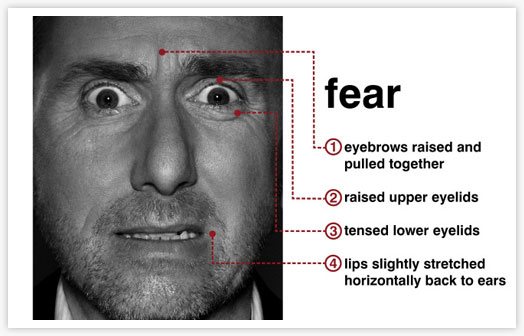
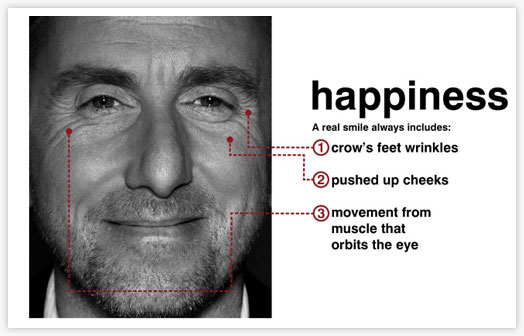
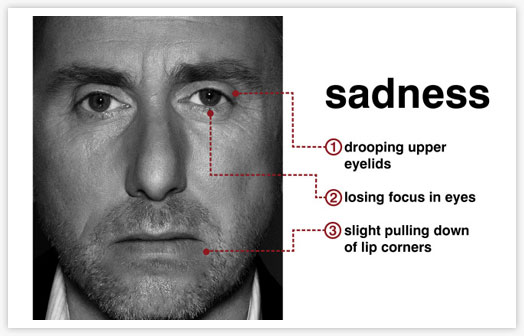
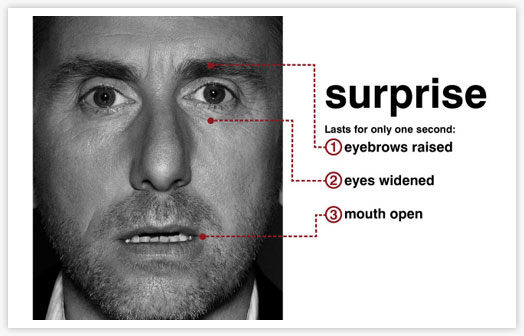
(Pictures are from FOX’s new show LIE TO ME)
These emotions are displayed based on how the muscles in your face move. While researching the face, Ekman created a coding system to identify all of the possible movements that each of you facial muscles can make called the Facial Action Coding System. You don’t have to become an expert in the FACS to read faces though. Ekman offers a nice set of tools to help you better identify people’s facial expressions in real-time.
On his website, you can view a few video interviews that he has done over the years analyzing and explaining his reading of faces. These videos are great both as training tools to understand the range and depth of information that faces present. They also give you a great insight into how you can use facial recognition to more accurately read a person’s emotional state, both the subtle emotions people experience and the emotions they don’t want you to see.
Training Yourself To Notice Facial Expressions
Mr. Ekman has created two training modules that can help you identify these seven basic facial expressions with more precision and ease. It is relatively easy to identify these facial expression when we are shown a picture, but people don’t usually wear their expressions for minutes at a time! On his website, you can use his training videos to identify what he call micro-expressions and subtle-expressions.
Subtle expressions
Subtle expressions happen when someone experiences an emotion very briefly or when the emotion is not as intense. The subtle expression training tool shows you how to recognize the subtle movements in a person’s facial muscles that correspond with various emotions.
Microexpressions
Micro expressions occur when a person is trying to suppress or repress an emotion. Have you ever tried to not smile, or not look angry? In the show Lie To Me, the main character deals with people who are constantly trying to hide their emotions. This training enables you to read a person’s emotional state, even when they don’t want you to!
Using these two training programs will not only help you read ‘pure emotions’, but you will also learn to notice when someone displays conflicting emotions, as in where they’re not sure what to think or feel about something. Mixed emotions are displayed by people when they have two contrasting emotions. Because people can experience more than one emotion at a time, our faces sometimes give off mixed signals. For a brief instant, someone may smile with their mouth at a joke and at the same time display anger with their brow.
Lie to Me
The show Lie to Me on Fox is actually an application of Paul Ekman’s work. In the show, you will see Cal Lightman (the character of Paul Ekamn played by Tim Roth) help private individuals, companies and government investigators find out the truth behind a situation. By expertly reading the expressions of the people he interviews, he uncovers the story behind the story. The show serves as a great introduction to reading body-language and facial expressions.
If you watch the show (close) enough, you’ll start to recognize the richness of information that people present through their facial expressions. Even after gone through the training tools myself, I find myself watching Lie To Me reruns on Hulu to see more of the subtly in facial expressions.
Further Reading
You can also read Ekman’s books for further information about facial expressions and emotions. I tend to like his training tools literally because they are more visual and real-time than verbal (reading) in their presentation. Also graphic novelist Scott McCloudThe Artists Complete Guide to Facial Expressions for a much more in-depth view of facial expressions. recommends Gary Fagin’s
About the Author: Byron Woodson also blogs on his networking blog Weaving Networks